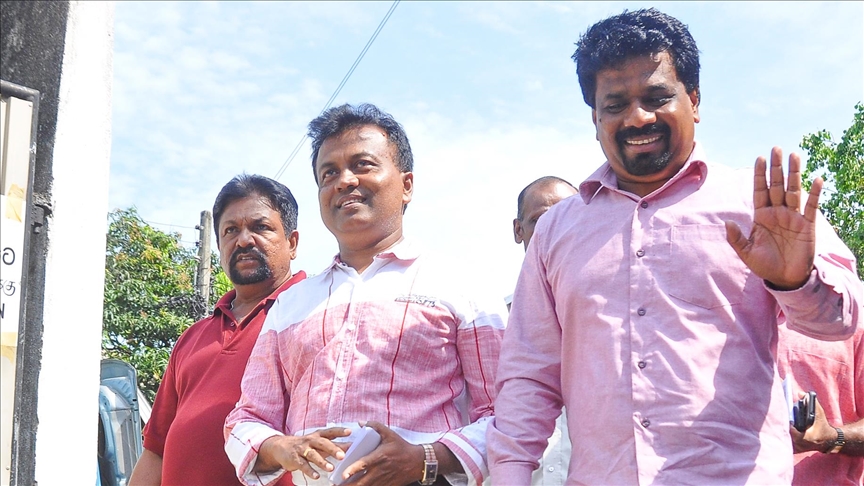Anura Kumara Dissanayaka becomes Sri Lanka’s 9th executive president
KARACHI, Pakistan
Anura Kumara Dissanayaka was elected cash-strapped Sri Lanka’s 9th executive president on Sunday in a decisive victory.
Commonly referred to by his initials AKD, Dissanayaka is the first Sri Lankan president elected in a run-off as he failed to secure 50% of the vote in an initial round.
Receiving over 5.74 million votes, which accounted for 55.89% of total valid ballots, Dissanayaka beat his closest rival Sajith Premadasa, who leads the South Asian island nation’s opposition and got about 4.53 million votes.
Born in November 1968 to a laborer family in Anuradhapura, a district in Sri Lanka’s North Central province, he received his education at the Thambuthegama Gamini Maha Vidyalaya school and the Thambuthegama Central College.
Dissanayaka has been involved with the Janatha Vimukthi Peramuna (JVP), or People’s Liberation Front, a Marxist–Leninist communist party since his school days.
He was active in student politics at the University of Kelaniya, located near the capital Colombo, before joining the JVP politburo in 1995.
Dissanayake, a father of one, has been a member of parliament since September 2000 and has served as the minister of agriculture, livestock, land and irrigation in 2004-2005 and chief opposition whip in 2015-2018.
In 2014, he was named the leader of JVP, formerly a revolutionary movement, and led two failed uprisings against the government — one in 1971 and again in 1987–1989 — with the motive of establishing a socialist state both times.
The two uprisings left more than 80,000 people dead.
The JVP won less than 4% of the vote in the August 2020 parliamentary elections.
Dissanayake graduated in physical science in 1995.
In the same year, he became national organizer of the Socialist Students Association and was appointed to the JVP’s central working committee.
He contested the 2019 presidential election as a candidate of National People’s Power (NPP), a political organization led by the JVP, and came in third with 3% of valid votes.
The NPP retained him as its candidate for the 2024 presidential election.
– Daunting task ahead
Despite his below-average performance in the 2019 presidential polls, the 2022 economic crisis that led to the ouster of the government, including the incumbent president, proved an opportunity for Dissanayaka.
Riding a wave of support among the youth fed up with the country’s old guard, Dissanayaka, in his election campaign, pledged to change the island’s “corrupt” political culture.
Aside from dealing with deep-rooted corruption, he must also revamp a floundering economy and keep it afloat, something analysts say will be a formidable task.
Sri Lanka’s poverty rate doubled to 25% between 2021 and 2022, adding more than 2.5 million people to those already living on less than $3.65 a day.
Experts warn that Sri Lanka’s economy is still not out of the woods as the Island country has to pay $46 billion foreign debt, with installments yet to resume since the country’s 2022 default.
Analysts believe that pledging to continue with the IMF program and simultaneously changes to ease the burden on the poor, will not be easy for the new president.
Anadolu Agency website contains only a portion of the news stories offered to subscribers in the AA News Broadcasting System (HAS), and in summarized form. Please contact us for subscription options.



